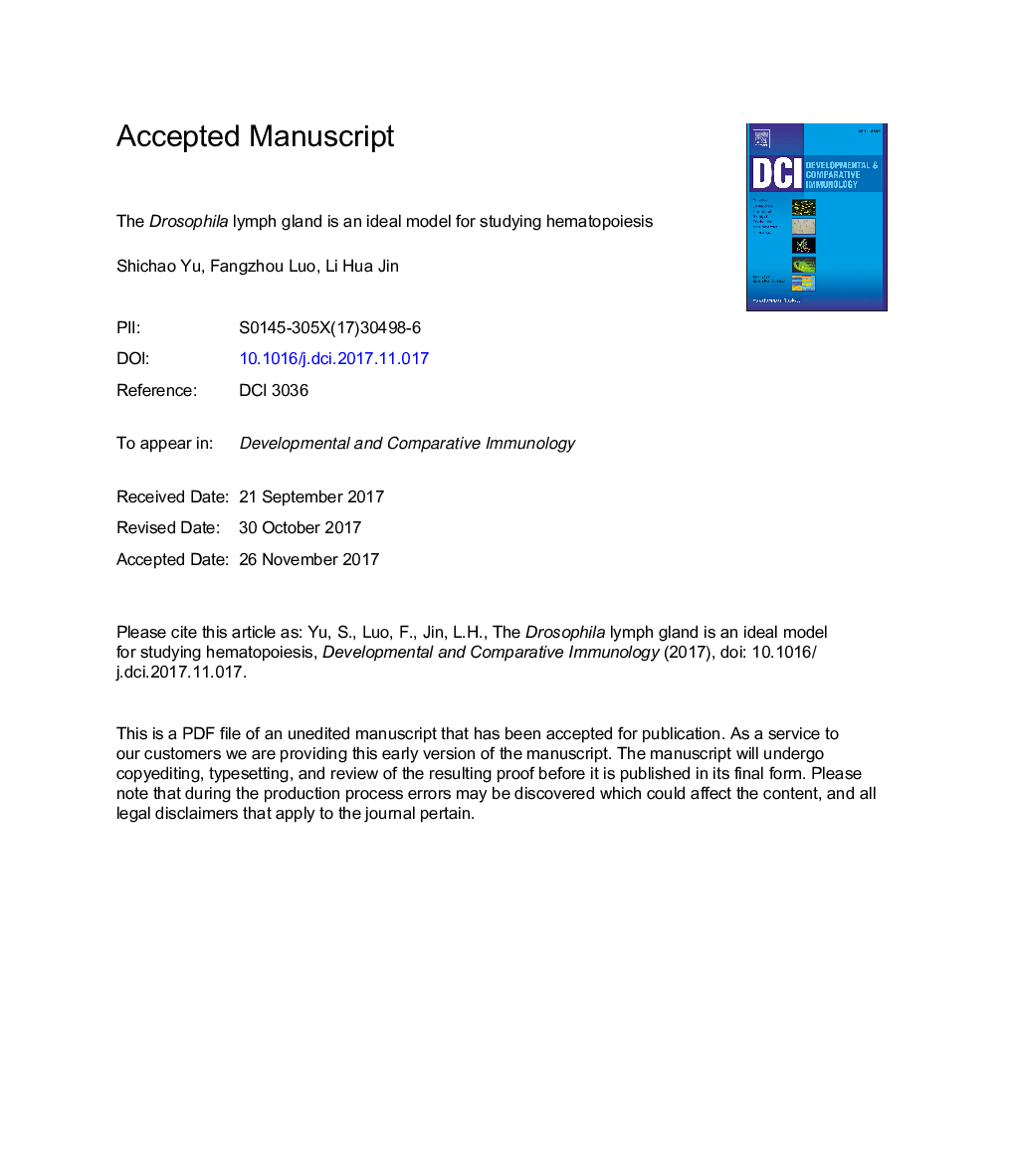| Article ID | Journal | Published Year | Pages | File Type |
|---|---|---|---|---|
| 8497765 | Developmental & Comparative Immunology | 2018 | 47 Pages |
Abstract
Hematopoiesis in Drosophila melanogaster occurs throughout the entire life cycle, from the embryo to adulthood. The healthy lymph gland, as a hematopoietic organ during the larval stage, can give rise to two mature types of hemocytes, plasmatocytes and crystal cells, which persist into the pupal and adult stages. Homeostasis of the lymph gland is tightly controlled by a series of conserved factors and signaling pathways, which also play key roles in mammalian hematopoiesis. Thus, revealing the hematopoietic mechanisms in Drosophila will advance our understanding of hematopoietic stem cells and their niche as well as leukemia in mammals. In addition, the lymph gland employs a battery of strategies to produce lamellocytes, another type of mature hemocyte, to fight against parasitic wasp eggs, making the lymph gland an important immunological organ. In this review, the developmental process of the lymph gland and the regulatory networks of hematopoiesis are summarized. Moreover, we outline the current knowledge and novel insight into homeostasis of the lymph gland.
Related Topics
Life Sciences
Biochemistry, Genetics and Molecular Biology
Developmental Biology
Authors
Shichao Yu, Fangzhou Luo, Li Hua Jin,
